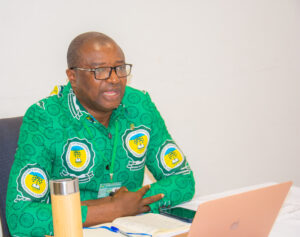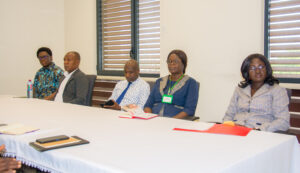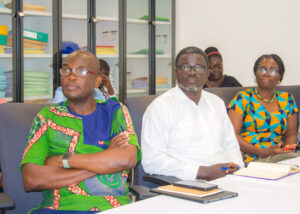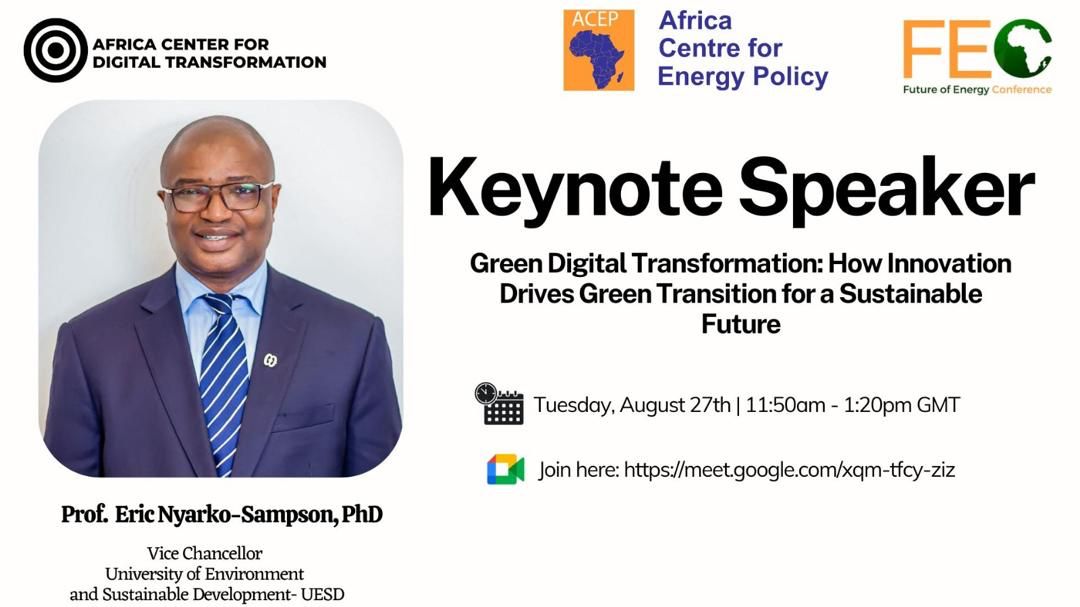The Vice-Chancellor of the University of Environment and Sustainable Development (UESD), Professor Eric Nyarko-Sampson, has called on Ghanaians and the rest of Africa to unify their efforts in creating a sustainable future, positioning Africa as a shining example of green digital transformation for the world. He emphasised that the youth must be equipped with the necessary knowledge and skills to thrive in a digital economy while understanding the importance of sustainability.
Prof. Nyarko-Sampson was delivering the keynote address virtually at the Future of Energy Conference 2024 in Accra, themed Green Digital Transformation: How Digital Innovation Drives Green Transition for a Sustainable Future. It was organised by the think tank, Africa Centre for Energy Policy.

He acknowledged the increasing global drive and focus on green digital innovations, noting that it has become evident to nations worldwide that digital innovation is critical to the global transformation agenda. He highlighted that the global community, facing challenges such as climate change, resource depletion, pollution, and environmental degradation, has recognised the urgency of a green transition and how digital technologies can accelerate progress toward a sustainable future that prioritizes the well-being of humankind today and for future generations.
Benefits of Digital Technology
Prof. Nyarko-Sampson explained that digital innovations help incorporate technology to form or alter products, processes, and business models. With digital technologies, the transition to a sustainable future is significantly ensured, as evidenced by the adoption of renewable energy sources such as solar devices for various applications, enhancing energy efficiency, and enabling demand-side flexibility—such as using smart grids, meters, and appliances.
He observed the significant strides being made in Africa to embrace green digital transformation. Ghana, he noted, has undertaken several initiatives reflecting its commitment to integrating technology and sustainability. Some notable efforts include renewable energy expansion, such as solar farms, and green digital platforms like Sesi Technologies and Farmerline. The keynote speaker acknowledged the significance of these ongoing innovations in reducing the carbon footprint and facilitating green transitions for a sustainable future.
Way Forward for Ghana
On the way forward, Prof. Nyarko-Sampson made several recommendations on how digital technologies can advance the transition to a sustainable future. These include adopting renewable energy such as solar devices for various applications, enhancing energy efficiency, enabling demand-side flexibility (using smart grids, metres, and devices/appliances/machines), implementing decentralised distributed energy systems powered by renewables, facilitating mobility through electric vehicles and trains, optimising traffic flows, and contributing to digitally enabled logistics systems that enhance freight management and reduce transport needs. Additionally, he emphasised enhancing energy efficiency in other sectors such as agriculture, trade, and industrial operations.


Role of Universities
Prof. Nyarko-Sampson also underscored the role universities play in driving the green transition toward a sustainable future, acting as key hubs of innovation, education, and research. “They must continue to lead in the development of digital solutions to address environmental challenges by encouraging interdisciplinary collaboration and preparing students with the skills to merge technology with sustainability,” he said. He noted that UESD offers programmes focusing on green building technologies, smart cities, renewable energy, and resource management to train students to lead the green transition and promote sustainable development through technology. These programmes, such as Sustainable Development, Sustainable Construction Management, Urban Planning, and Environmental Economics, combine digital innovation and sustainability, gradually growing UESD into a hub of innovation, education, and pioneering research focused on green technologies.
UESD Core Values
The Vice-Chancellor shared the core values of UESD with the participants, encapsulated in the acronym HOPE: H – Honesty, O – Opportunity, P – Perseverance, and E – Enterprising. He emphasised that these values align well with the discourse on green transitions and digital innovations. “We cannot achieve the green transition using digital innovations without moral values such as ‘Honesty’ (integrity), as people can abuse and misuse such innovations. We must take advantage of existing ‘Opportunities’ to develop digital innovations and create ‘Opportunities’ for future generations to drive green transitions for national development. We must ‘Persevere’ in our quest to develop and use digital innovations to transition toward a sustainable future, and we must be ‘Enterprising’ to develop digital innovations that solve current and emerging challenges for a greener future,” he concluded.

